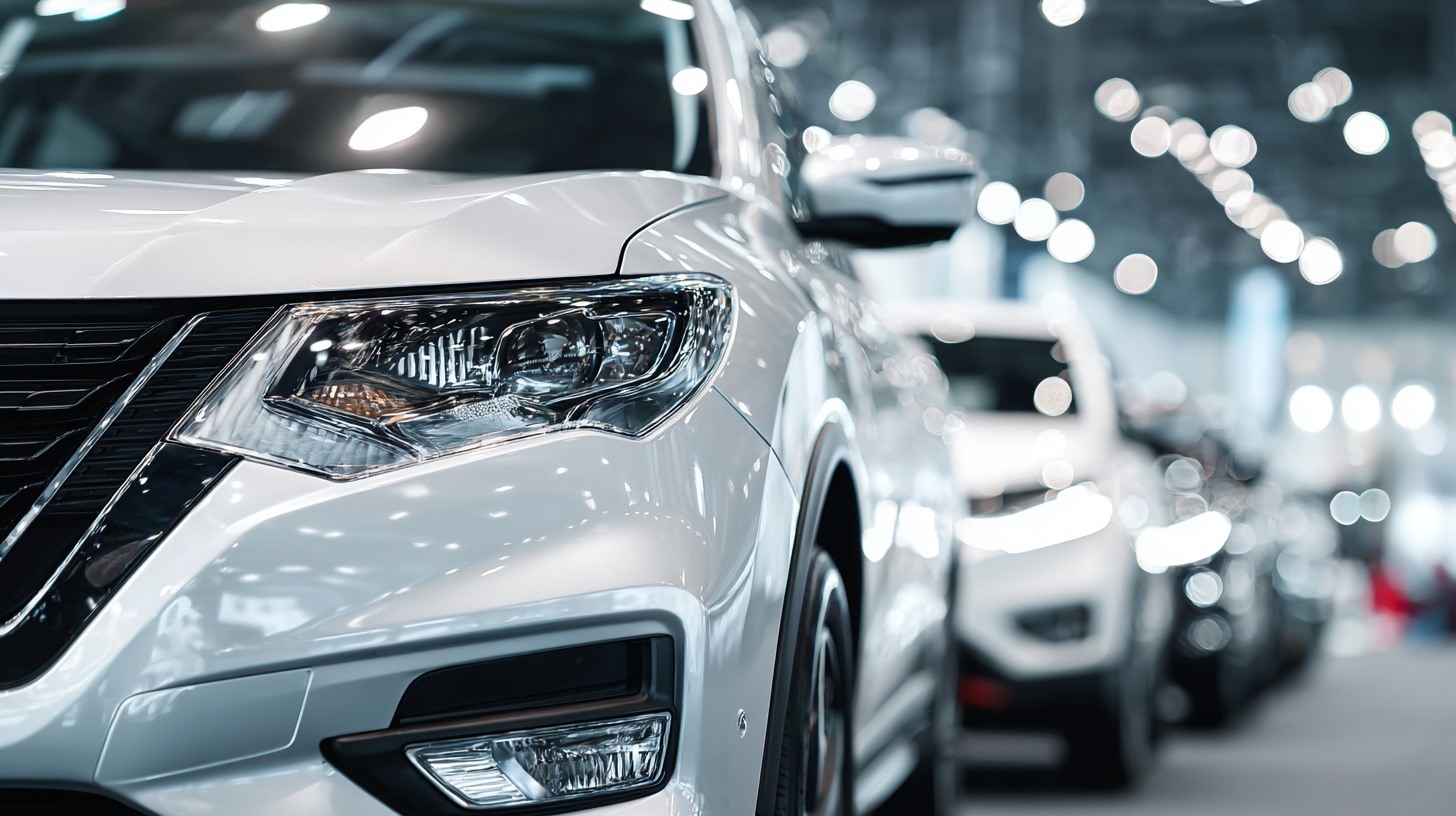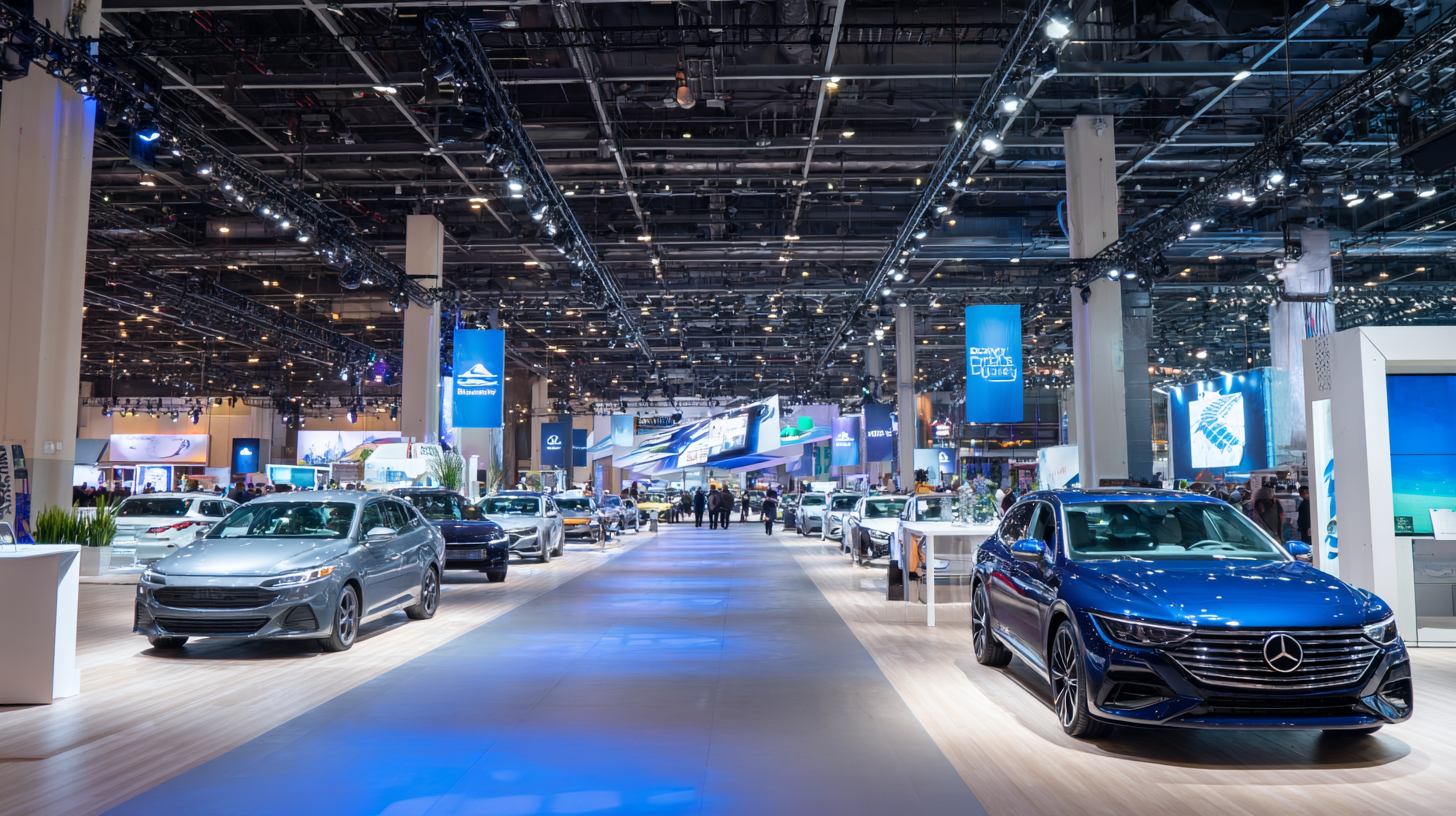Leave Your Message
As we move toward 2025, the global auto market is poised for significant transformation, shaped by the rising prominence of Chinese manufacturing as a leading representative of excellence and export strength. According to the International Organization of Motor Vehicle Manufacturers (OICA), China is projected to remain the world's largest automobile producer, with a production output expected to reach over 35 million units annually by 2025. This growth presents both challenges and opportunities for auto dealers worldwide, who must navigate an increasingly competitive landscape characterized by technological advancements and shifting consumer preferences. By focusing on the unique strengths of Chinese auto brands and leveraging their established reputation for quality and innovation, auto dealers can position themselves strategically in the global trade arena. Embracing these insights will be crucial for dealers striving to thrive amid evolving market dynamics and capitalize on the lucrative opportunities offered by Chinese automotive exports.

In the dynamic landscape of global trade, the automotive dealership sector has evolved significantly, presenting various dealer types that cater to diverse consumer preferences and market demands. Among these, traditional franchised dealers continue to dominate, offering established brands and a seamless purchasing experience.
These dealers typically have exclusive rights to sell specific brands, which allows them to provide specialized services, including warranty and post-sale support, fostering customer loyalty.
On the other end of the spectrum are independent dealers, who thrive on flexibility and a broader inventory that includes used and multi-brand vehicles. They often attract budget-conscious consumers looking for value without compromising quality. Independent dealers are increasingly leveraging digital platforms to reach a wider audience, emphasizing transparency and customer service to compete with their franchised counterparts.
Additionally, the emergence of online auto marketplaces has transformed the dealership model, allowing consumers to shop from the comfort of their homes, thus reshaping how dealers interact with potential buyers in this evolving marketplace.

As the automotive industry evolves, understanding consumer preferences across diverse auto products is crucial for dealers aiming to succeed in the global market. Today’s consumers are not just looking for quality vehicles; they prioritize sustainability, technology, and personalized experiences. Electric vehicles, hybrid models, and advanced safety features are now at the forefront of purchase decisions, indicative of a shift towards eco-consciousness and innovation.
Tip: Conduct regular surveys to gather insights into customer preferences. This data can help you tailor your inventory to match the evolving demands of your clientele. Engaging customers through social media and digital platforms can also provide real-time feedback on market trends.
Additionally, the rise of digitalization in the buying process has transformed how consumers approach auto shopping. Many prefer a seamless online experience, from browsing inventory to completing purchases. Auto dealers must enhance their online presence and provide thorough product information, along with virtual test drives and online financing options, to meet these changing expectations.
Tip: Invest in user-friendly websites and mobile apps that reflect your inventory accurately. Offering virtual consultations can bridge the gap between online convenience and the personal touch that consumers value.
| Region | Preferred Auto Products | Percentage of Consumers (%) | Consumer Age Group | Insights |
|---|---|---|---|---|
| North America | SUVs | 45 | 25-40 | High demand for spacious vehicles due to family-oriented consumers. |
| Europe | Electric Vehicles | 60 | 18-35 | Strong preference for eco-friendly options among young consumers. |
| Asia | Compact Cars | 50 | 30-50 | Urban consumers favor small vehicles for city driving. |
| South America | Pick-Up Trucks | 40 | 35-55 | Rising interest in utility vehicles for both work and leisure. |
| Africa | Affordable Sedans | 55 | 25-45 | Cost-effective options are crucial for middle-income consumers. |
 As we approach 2025, the auto dealership landscape is rapidly evolving, demanding adaptability from dealers worldwide. With the rise of online car sales and customer expectations for seamless digital experiences, traditional dealerships must pivot their strategies. Emphasizing a strong online presence is crucial; be it through an engaging website or active social media channels, dealers can capture attention and convert leads through innovative online marketing tactics.
As we approach 2025, the auto dealership landscape is rapidly evolving, demanding adaptability from dealers worldwide. With the rise of online car sales and customer expectations for seamless digital experiences, traditional dealerships must pivot their strategies. Emphasizing a strong online presence is crucial; be it through an engaging website or active social media channels, dealers can capture attention and convert leads through innovative online marketing tactics.
Tip: Create virtual tours of your showroom and leverage video content to showcase vehicles. This not only enhances customer engagement but also allows potential buyers to explore their options comfortably from home.
Moreover, as consumer preferences shift towards sustainability, dealers must consider adopting eco-friendly practices. This might include focusing on electric vehicle (EV) sales or implementing green certifications in their operations. By aligning with environmentally conscious trends, dealerships can differentiate themselves and appeal to a broader customer base.
Tip: Partner with local EV charging stations to create incentives for customers and promote electric vehicle awareness through outreach programs in your community. This will not only enhance your reputation but also position you as a forward-thinking dealer in an increasingly eco-friendly market.
In the rapidly evolving landscape of global trade, the auto industry faces significant regulatory challenges that vary across different types of auto products. According to a recent report from MarketsandMarkets, the global automotive regulatory compliance market is projected to grow from USD 8.3 billion in 2022 to USD 12.3 billion by 2027, highlighting the urgency for auto dealers to stay abreast of changing regulations. These regulations, influenced by environmental concerns and safety standards, affect everything from electric vehicles (EVs) to traditional internal combustion engine models. For instance, the European Union’s stringent emissions regulations are pushing manufacturers toward cleaner technologies, creating a ripple effect on global trade dynamics.
Moreover, the World Trade Organization (WTO) notes that tariffs and trade agreements play a critical role in shaping market accessibility for various auto products. With the increasing adoption of EVs, certain regions, such as the European market, are imposing specific regulatory requirements that impact trade agreements with countries outside the bloc. In 2023, the International Energy Agency (IEA) reported that electric car sales accounted for nearly 10% of global car sales, a figure expected to rise sharply as regulatory frameworks tighten. Dealers must not only navigate these regulations but also leverage them to position themselves competitively in the evolving marketplace, utilizing insights gained from compliance data to anticipate market shifts.
As the auto dealership landscape evolves, leveraging technology becomes paramount to enhance offerings and improve customer experiences. According to the 2023 Global Automotive Sales report, dealerships that have implemented advanced digital platforms have witnessed a remarkable 25% increase in customer engagement. This trend highlights the growing importance of online presence and digital interactions in attracting and retaining consumers.
Moreover, integrating artificial intelligence (AI) and data analytics is reshaping customer service strategies. A study by the Automotive Industry Association indicated that dealerships utilizing AI-driven customer insights reported a 30% improvement in tailored customer experiences. By analyzing consumer behavior and preferences, dealerships can provide personalized recommendations, streamline the purchasing process, and ultimately increase customer satisfaction.
Additionally, the advent of virtual reality (VR) technology is revolutionizing how dealerships present their vehicles. The 2022 Dealer Technology Survey revealed that 40% of consumers expressed greater interest in dealerships that offer VR showrooms, allowing them to explore vehicle features interactively. As the auto industry ventures further into this tech-driven era, embracing these innovations will be crucial for dealers aiming to thrive in a competitive global market.
